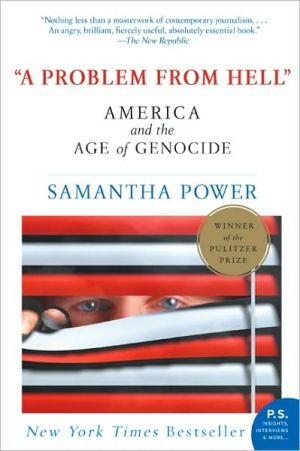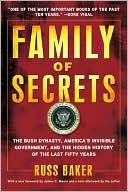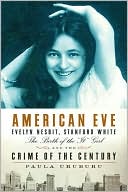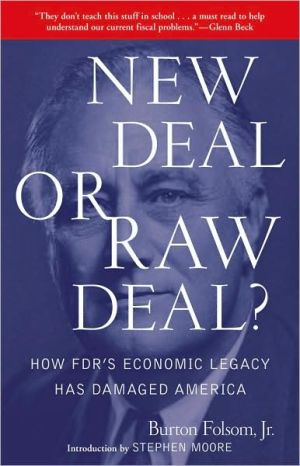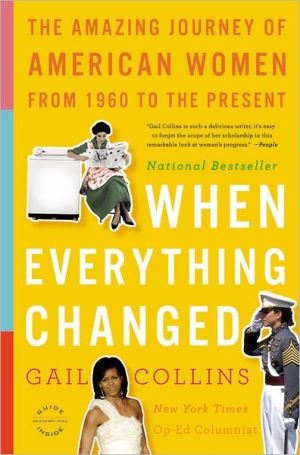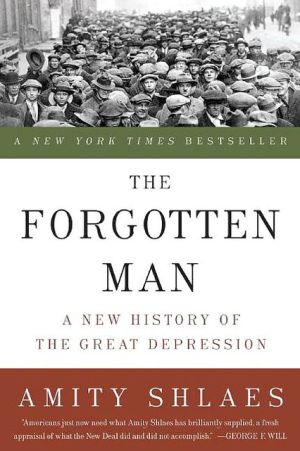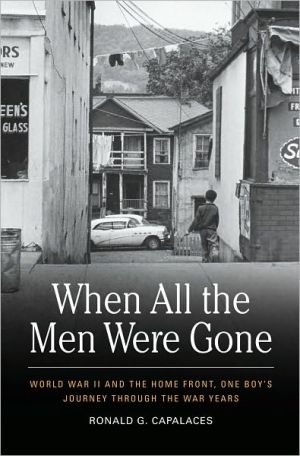A Problem from Hell: America and the Age of Genocide
In her award-winning interrogation of the last century of American history, Samantha Power—a former Balkan war correspondent and founding executive director of Harvard's Carr Center for Human Rights Policy—asks the haunting question: Why do American leaders who vow "never again" repeatedly fail to stop genocide? Drawing upon exclusive interviews with Washington's top policy makers, access to newly declassified documents, and her own reporting from the modern killing fields, Power provides the...
Search in google:
A character-driven study of some of the darkest moments in our national history, when America failed to prevent or stop 20th-century campaigns to exterminate Armenians, Jews, Cambodians, Iraqi Kurds, Bosnians, and Rwandans . Doris Kearns Goodwin Some books elegantly record history; some books make history. This book does both. Power brings a story-teller's gift for gripping narrative together with a reporter's hunger for the inside story. Drawing on newly declassified documents and scores of exclusive interviews, she has produced an unforgettable history of Americans who stood up and stood by in the face of genocide. It is a history of our country that has never before been told, and it should change the way we see America and its role in the world.
Chapter One \ \ \ "Race Murder"\ \ \ Trial by Fire\ \ \ On March 14, 1921, on a damp day in the Charlottenburg district of Berlin, a twenty-four-year-old Armenian crept up behind a man in a heavy gray overcoat swinging his cane. The Armenian, Soghomon Tehlirian, placed a revolver at the back of the man's head and pulled the trigger, shouting, "This is to avenge the death of my family!" The burly target crumpled. If you had heard the shot and spotted the rage distorting the face of the young offender, you might have suspected that you were witnessing a murder to avenge a very different kind of crime. But back then you would not have known to call the crime in question "genocide." The word did not yet exist.\ Tehlirian, the Armenian assassin, was quickly tackled. As pedestrians beat him with their fists and house keys, he shouted in broken German, "I foreigner, he foreigner, this not hurt Germany.... It's nothing to do with you." It was national justice carried out in an international setting. Tehlirian had just murdered Talaat Pasha, the former Turkish interior minister who had set out to rid Turkey of its Armenian "problem." In 1915 Talaat had presided over the killing by firing squad, bayoneting, bludgeoning, and starvation of nearly 1 million Armenians.\ The outside world had known that the Armenians were at grave risk well before Talaat and the Young Turk leadership ordered their deportation. When Turkey entered World War I on the side of Germany against Britain, France, and Russia, Talaat made it clear that theempire would target its Christian subjects. In January 1915, in remarks reported by the New York Times, Talaat said that there was no room for Christians in Turkey and that their supporters should advise them to clear out. By late March Turkey had begun disarming Armenian men serving in the Ottoman army. On April 25, 1915, the day the Allies invaded Turkey, Talaat ordered the roundup and execution of some 250 leading Armenian intellectuals in Constantinople. In each of Turkey's six eastern provinces, local Armenian notables met roughly the same fate. Armenian men in rural areas were initially enlisted as pack animals to transport Turkish supplies to the front, but soon even this was deemed too dignified an existence for the traitorous Christians. Churches were desecrated. Armenian schools were closed, and those teachers who refused to convert to Islam were killed. All over Anatolia the authorities posted deportation orders requiring the Armenians to relocate to camps prepared in the deserts of Syria. In fact, the Turkish authorities knew that no facilities had been prepared, and more than half of the deported Armenians died on the way. "By continuing the deportation of the orphans to their destinations during the intense cold," Talaat wrote, "we are ensuring their eternal rest."\ "Official proclamations," like this one from June 1915, cropped up around town:\ \ \ Our Armenian fellow countrymen, ... because ... they have ... attempted to destroy the peace and security of the Ottoman state, ... have to be sent away to places which have been prepared in the interior ... and a literal obedience to the following orders, in a categorical manner, is accordingly enjoined upon all Ottomans:\ \ \ With the exception of the sick, all Armenians are obliged to leave within five days from the date of this proclamation....\ \ \ Although they are free to carry with them on their journey the articles of their movable property which they desire, they are forbidden to sell their land and their extra effects, or to leave them here and there with other people....\ \ \ \ \ The Young Turks—Talaat; Enver Pasha, the minister of war; and Djemal Pasha, the minister of public works—justified the wholesale deportation of the Armenians by claiming that it was necessary to suppress Armenian revolts. When Russia had declared war on Turkey the previous year, it had invited Armenians living within Turkey to rise up against Ottoman rule, which a small minority did. Although two prominent Ottoman Armenians led a pair of czarist volunteer corps to fight Turkey, most expressed loyalty to Constantinople. But this did not stop the Turkish leadership from using the pretext of an Armenian "revolutionary uprising" and the cover of war to eradicate the Armenian presence in Turkey. Very few of those killed were plotting anything other than survival. The atrocities were carried out against women, children, and unarmed men. They were not incidental "by-products" of war but in fact resulted from carefully crafted decisions made by Turkey's leaders.\ In June 1915 Erzindjan, the hometown of Talaat's eventual assassin, was emptied. Soghomon Tehlirian, then nineteen, marched in a column of some 20,000 people, with his mother and siblings—two sisters of fifteen and sixteen, another of twenty-six who carried a two-and-a-half-year-old child, and two brothers of twenty-two and twenty-six. The journey was harrowing. The gendarmes said to be protecting the convoy first dragged Tehlirian's sisters off behind the bushes to rape them. Next he watched a man split his twenty-two-year-old brother's head open with an ax. Finally, the soldiers shot his mother and struck Tehlirian unconscious with a blow to the head. He was left for dead and awoke hours later in a field of corpses. He spotted the mangled body of a sister and the shattered skull of his brother. His other relatives had disappeared. He guessed he was the sole survivor of the caravan.\ \ \ Recognition\ \ \ The "international community," such as it was, did little to contest the Turkish horrors, which began nine months into World War I. Germany was aligned with the brutal regime and thus was best positioned to influence it. Instead, German officials generally covered up Talaat's campaign, ridiculing the Allied accounts of the terror as "pure inventions" and "gross exaggerations." The Germans echoed the Turks' claims that any harsh policies were a measured response to Armenian treason during wartime. The German chancellor met in person with German Christian missionaries who presented eyewitness testimony about the slaughter. But he rejected their appeals. Berlin would not offend its Turkish ally.\ Britain and France were at war with the Ottoman Empire and publicized the atrocities. The British Foreign Office dug up photographs of the massacre victims and the Armenian refugees in flight. An aggressive, London-based, pro-Armenian lobby helped spur the British press to cover the savagery. But some had trouble believing the tales. British foreign secretary Sir Edward Grey, for one, cautioned that Britain lacked "direct knowledge" of massacres. He urged that "the massacres were not all on one side" and warned that denunciation would likely be futile. Indeed, when Russia's foreign minister drafted a public threat that he hoped the Allies could issue jointly, Grey said he doubted that the message would influence Turkish behavior and might even cause Turkey to adopt more serious measures against the Armenians. Since Britain was already at war with Turkey, other British officials argued that the most expedient way to end the killings would be to defeat the German-Austrian-Turkish alliance. On May 24, 1915, the Allied governments did deliver a joint declaration that took the unprecedented step of condemning "crimes against humanity and civilization." The declaration warned the members of the Turkish government that they and their "agents" would be held "personally responsible" for the massacres. Generally, though, the Allies were busy trying to win the war. At the same time the Turks were waging their campaign against the Armenian minority, the German army was using poison gas against the Allies in Belgium. In May 1915 the German army had torpedoed the Lusitania passenger liner, killing 1,200 (including 190 Americans). The Germans had also just begun zeppelin attacks against London.\ The United States, determined to maintain its neutrality in the war, refused to join the Allied declaration. President Woodrow Wilson chose not to pressure either the Turks or their German backers. It was better not to draw attention to the atrocities, lest U.S. public opinion get stirred up and begin demanding U.S. involvement. Because the Turks had not violated the rights of Americans, Wilson did not formally protest.\ But in Turkey itself America's role as bystander was contested. Henry Morgenthau Sr., a German-born Jew who had come to the United States as a ten-year-old boy and had been appointed ambassador to the Ottoman Empire by President Wilson in 1913, agitated for U.S. diplomatic intervention. In January and February 1915, Morgenthau had begun receiving graphic but fragmentary intelligence from his ten American consuls posted throughout the Ottoman Empire. At first he did not recognize that the atrocities against the Armenians were of a different nature than the wartime violence. He was taken in by Talaat's assurances that uncontrolled elements had simply embarked upon "mob violence" that would soon be contained. In April, when the massacres began in earnest, the Turkish authorities severed Morgenthau's communication with his consuls and censored their letters. Morgenthau was reluctant to file reports back to Washington based on rumors, and the Turks were making it impossible for him to fact-check.\ Although he was initially incredulous, by July 1915 the ambassador had come around. He had received too many visits from desperate Armenians and trusted missionary sources to remain skeptical. They had sat in his office with tears streaming down their faces, regaling him with terrifying tales. When he compared this testimony to the strikingly similar horrors relayed in the rerouted consular cables, Morgenthau came to an astonishing conclusion. What he called "race murder" was under way. On July 10, 1915, he cabled Washington with a description of the Turkish campaign:\ \ \ Persecution of Armenians assuming unprecedented proportions. Reports from widely scattered districts indicate systematic attempt to uproot peaceful Armenian populations and through arbitrary arrests, terrible tortures, whole-sale expulsions and deportations from one end of the Empire to the other accompanied by frequent instances of rape, pillage, and murder, turning into massacre, to bring destruction and destitution on them. These measures are not in response to popular or fanatical demand but are purely arbitrary and directed from Constantinople in the name of military necessity, often in districts where no military operations are likely to take place.\ \ \ Response\ \ \ Morgenthau was constrained by two background conditions that seemed immutable. First, the Wilson administration was resolved to stay out of World War I. Picking fights with Turkey did not seem a good way to advance that objective. And second, diplomatic protocol demanded that ambassadors act respectfully toward their host governments. U.S. diplomats were expected to stay out of business that did not concern U.S. national interests. "Turkish authorities have definitely informed me that I have no right to interfere with their internal affairs," Morgenthau wrote. Still, he warned Washington, "there seems to be a systematic plan to crush the Armenian race."\ Local witnesses urged him to invoke the moral power of the United States. Otherwise, he was told, "the whole Armenian nation would disappear." The ambassador did what he could, continuing to send blistering cables back to Washington and raising the matter at virtually every meeting he held with Talaat. He found his exchanges with the interior minister infuriating. Once, when the ambassador introduced eyewitness reports of slaughter, Talaat snapped back: "Why are you so interested in the Armenians anyway? You are a Jew, these people are Christians.... What have you to complain of? Why can't you let us do with these Christians as we please?" Morgenthau replied, "You don't seem to realize that I am not here as a Jew but as the American Ambassador.... I do not appeal to you in the name of any race or religion but merely as a human being." Talaat looked confused. "We treat the Americans all right, too," he said. "I don't see why you should complain."\ But Morgenthau continued to complain, warning that Talaat and other senior officials would eventually be held responsible before the court of public opinion, particularly in the United States. Talaat had a ready response: "We don't give a rap for the future!" he exclaimed. "We live only in the present!" Talaat believed in collective guilt. It was legitimate to punish all Armenians even if only a few refused to disarm or harbored seditious thoughts. "We have been reproached for making no distinction between the innocent Armenians and the guilty," Talaat told a German reporter. "But that was utterly impossible, in view of the fact that those who were innocent today might be guilty tomorrow."\ Instead of hiding his achievements, as later perpetrators would do, Talaat boasted of them. According to Morgenthau, he liked to tell friends, "I have accomplished more toward solving the Armenian problem in three months than Abdul Hamid accomplished in thirty years!" (The Turkish sultan Abdul Hamid had killed some 200,000 Armenians in 1895-1896.) Talaat once asked Morgenthau whether the United States could get the New York Life Insurance Company and Equitable Life of New York, which for years had done business with the Armenians, to send a complete list of the Armenian policyholders to the Turkish authorities. "They are practically all dead now and have left no heirs," Talaat said. "The Government is the beneficiary now."\ Morgenthau was incensed at the request and stormed out of Talaat's office. He again cabled back to Washington, imploring his higher-ups to take heed:\ \ \ I earnestly beg the Department to give this matter urgent and exhaustive consideration with a view to reaching a conclusion which may possibly have the effect of checking [Turkey's] Government and certainly provide opportunity for efficient relief which now is not permitted. It is difficult for me to restrain myself from doing something to stop this attempt to exterminate a race, but I realize that I am here as Ambassador and must abide by the principles of non-interference with the internal affairs of another country.\ \ \ Morgenthau had to remind himself that one of the prerogatives of sovereignty was that states and statesmen could do as they pleased within their own borders. "Technically," he noted to himself, "I had no right to interfere. According to the cold-blooded legalities of the situation, the treatment of Turkish subjects by the Turkish Government was purely a domestic affair; unless it directly affected American lives and American interests, it was outside the concern of the American Government." The ambassador found this maddening.\ The New York Times gave the Turkish horrors steady coverage, publishing 145 stories in 1915. It helped that Morgenthau and Times publisher Adolph Ochs were old friends. Beginning in March 1915, the paper spoke of Turkish "massacres," "slaughter," and "atrocities" against the Armenians, relaying accounts by missionaries, Red Cross officials, local religious authorities, and survivors of mass executions. "It is safe to say," a correspondent noted in July, "that unless Turkey is beaten to its knees very speedily there will soon be no more Christians in the Ottoman Empire." By July 1915 the paper's headlines had begun crying out about the danger of the Armenians' "extinction" Viscount Bryce, former British ambassador to the United States, pleaded that the United States use its influence with Germany. "If anything can stop the destroying hand of the Turkish Government," Bryce argued, as did the missionaries who had appealed to Morgenthau, "it will be an expression of the opinion of neutral nations, chiefly the judgment of humane America." On October 7, 1915, a Times headline blared, "800,000 ARMENIANS COUNTED DESTROYED." The article reported Bryce's testimony before the House of Lords in which he urged the United States to demonstrate that there were "some crimes which, even now in the convulsion of a great war, the public opinion of the world will not tolerate." By December the paper's headline read, "MILLION ARMENIANS KILLED OR IN EXILE." The number of victims were estimates, as the bodies were impossible to count. Nevertheless, governmental and nongovernmental officials were sure that the atrocities were "unparalleled in modern times" and that the Turks had set out to achieve "nothing more or less than the annihilation of a whole people."\ (Continues...)\ \ \ Excerpted from "A PROBLEM FROM HELL" by Samantha Power. Copyright © 2002 by Samantha Power. Excerpted by permission. All rights reserved. No part of this excerpt may be reproduced or reprinted without permission in writing from the publisher. \ \ \ \
Preface1"Race Murder"12"A Crime Without a Name"173The Crime With a Name314Lemkin's Law475"A Most Lethal Pair of Foes"616Cambodia: "Helpless Giant"877Speaking Loudly and Looking for a Stick1558Iraq: "Human Rights and Chemical Weapons Use Aside"1719Bosnia: "No More than Witnesses at a Funeral"24710Rwanda: "Mostly in a Listening Mode"32911Srebrenica: "Getting Creamed"39112Kosovo: A Dog and a Fight44313Lemkin's Courtroom Legacy47514Conclusion503Notes517Bibliography575Acknowledgments589Index593About the Author611
\ Lawrence H. Summers“[A Problem From Hell] challenges our conscience and should influence what we do in the future.’’\ \ \ \ \ Aryeh Neier“[Power] is one of the most striking talents to emerge in the human rights field in a long time.”\ \ \ Former UN Ambassador"One of those rare books that can change one’s thinking...very painful reading, but it has to be read.’’\ \ \ \ \ Doris Kearns Goodwin“A history of our country that has never before been told... it should change the way we see America..”\ \ \ \ \ Former Senate Majority Leader D-Maine"This is a moving account of how millions of lives were lost."\ \ \ \ \ Paul M. Kennedy“A serious and compelling work... should be read by policy makers everywhere.”\ \ \ \ \ Stanley Hoffmann“Power writes with an admirable mix of erudition and passion... focuses fiercely on the human costs of indifference and passivity....”\ \ \ \ \ Philip Gourevitch“Samantha Power has written one of those rare books that is truly as important as its subject.”\ \ \ \ \ Time Magazine"Bracing...Power [is] the new conscience of the U.S. foreign-policy establishment."\ \ \ \ \ Former UN Ambassador Richard Holbrooke“One of those rare books that can change one’s thinking...very painful reading, but it has to be read.’’\ \ \ \ \ Former Senate Majority Leader George J. Mitchell (D-Maine)“This is a moving account of how millions of lives were lost.”\ \ \ \ \ New York Review of Books“Agonizingly persuasive.”\ \ \ \ \ Denver Post“Brilliantly conceived, superbly researched, mixing passion and erudition--it must be placed in the ‘must read’ category.”\ \ \ \ \ Washington Post“Forceful… Power tells this long, sorry history with great clarity and vividness.”\ \ \ \ \ Time magazine“Bracing...Power [is] the new conscience of the U.S. foreign-policy establishment.”\ \ \ \ \ Newsweek International“A damning indictment of American passivity in the face of some of history’s worse crimes.\ \ \ \ \ The New Republic“An angry, brilliant, fiercely useful, absolutely essential book.”\ \ \ \ \ Foreign Affairs“Disturbing...engaging and well written…will likely become the standard text on genocide prevention.”\ \ \ \ \ Newark Star Ledger“Groundbreaking... Power elegantly makes her case.”\ \ \ \ \ Weekly Standard“Avoids partisan finger-pointing [and] is a clarion call for America to remain an engaged moral power.”\ \ \ \ \ The New Yorker“Magisterial.”\ \ \ \ \ Reason“Compelling…Power leads her readers on a long and often gut-wrenching journey…. Power’s book raises vital questions.”\ \ \ \ \ Newsweek (International Edition)"A damning indictment of American passivity in the face of some of history’s worse crimes.\ \ \ \ \ Denver Post“Brilliantly conceived, superbly researched, mixing passion and erudition--it must be placed in the ‘must read’ category.”\ \ \ \ \ Newsweek International“A damning indictment of American passivity in the face of some of history’s worse crimes.\ \ \ \ \ Reason“Compelling…Power leads her readers on a long and often gut-wrenching journey…. Power’s book raises vital questions.”\ \ \ \ \ Washington Post“Forceful… Power tells this long, sorry history with great clarity and vividness.”\ \ \ \ \ Newark Star Ledger“Groundbreaking... Power elegantly makes her case.”\ \ \ \ \ The New Yorker“Magisterial.”\ \ \ \ \ Foreign Affairs“Disturbing...engaging and well written…will likely become the standard text on genocide prevention.”\ \ \ \ \ The New Republic“An angry, brilliant, fiercely useful, absolutely essential book.”\ \ \ \ \ Denver Post“Brilliantly conceived, superbly researched, mixing passion and erudition—it must be placed in the ‘must read’ category.”\ \ \ \ \ Weekly Standard“Avoids partisan finger-pointing [and] is a clarion call for America to remain an engaged moral power.”\ \ \ \ \ New York Review of Books“Agonizingly persuasive.”\ \ \ \ \ Time magazine“Bracing...Power [is] the new conscience of the U.S. foreign-policy establishment.”\ \ \ \ \ Newsweek InternationalA damning indictment of American passivity in the face of some of history’s worse crimes.\ \ \ \ \ Newsweek (International Edition)“A damning indictment of American passivity in the face of some of history’s worse crimes.\ \ \ \ \ Doris Kearns GoodwinSome books elegantly record history; some books make history. This book does both. Power brings a story-teller's gift for gripping narrative together with a reporter's hunger for the inside story. Drawing on newly declassified documents and scores of exclusive interviews, she has produced an unforgettable history of Americans who stood up and stood by in the face of genocide. It is a history of our country that has never before been told, and it should change the way we see America and its role in the world.\ \ \ \ \ Publishers WeeklyPower, a former journalist for U.S. News and World Report and the Economist and now the executive director of Harvard's Carr Center for Human Rights, offers an uncompromising and disturbing examination of 20th-century acts of genocide and U.S responses to them. In clean, unadorned prose, Power revisits the Turkish genocide directed at Armenians in 1915-1916, the Holocaust, Cambodia's Khmer Rouge, Iraqi attacks on Kurdish populations, Rwanda, and Bosnian "ethnic cleansing," and in doing so, argues that U.S. intervention has been shamefully inadequate. The emotional force of Power's argument is carried by moving, sometimes almost unbearable stories of the victims and survivors of such brutality. Her analysis of U.S. politics what she casts as the State Department's unwritten rule that nonaction is better than action with a PR backlash; the Pentagon's unwillingness to see a moral imperative; an isolationist right; a suspicious left and a population unconcerned with distant nations aims to show how ingrained inertia is, even as she argues that the U.S. must reevaluate the principles it applies to foreign policy choices. In the face of firsthand accounts of genocide, invocations of geopolitical considerations and studied and repeated refusals to accept the reality of genocidal campaigns simply fail to convince, she insists. But Power also sees signs that the fight against genocide has made progress. Prominent among those who made a difference are Raphael Lemkin, a Polish Jew who invented the word genocide and who lobbied the U.N. to make genocide the subject of an international treaty, and Senator William Proxmire, who for 19 years spoke every day on the floor of the U.S. Senate to urge the U.S. to ratify the U.N. treaty inspired by Lemkin's work. This is a well-researched and powerful study that is both a history and a call to action. Copyright 2001 Cahners Business Information.\ \ \ \ \ Kirkus ReviewsThe executive director of Harvard's Carr Center for Human Rights Policy presents a superb analysis of the US government's evident unwillingness to intervene in ethnic slaughter. Based on centuries-old hatreds all but inexplicable to outside observers, genocide is indeed "a problem from hell," as then-Secretary of State Warren Christopher put it. In Bosnia, which inspired Christopher's remark, those hatreds resulted in untold thousands of deaths, televised and reported for the world to see. Even so, writes Power (who covered the Balkan conflict for U.S. News and World Report), the Clinton administration was reluctant to characterize the butchery as genocide, preferring instead to cast it in terms of "tragedy" and "civil war" and thus "downplaying public expectations that there was anything the United States could do." The author argues that the Clinton administration's failure to act was entirely consistent with earlier American responses to genocide, which turned on the assumption of policymakers, journalists, and citizens that human beings are rational and in the event of war, innocent civilians can insure their safety merely by keeping out of the line of fire. That failure also fits in with the American government's isolationist tendencies, strong even at a time when the US is the world's sole superpower. Power examines genocide after genocide, including the Turkish slaughter of Armenians during WWI, the Holocaust, and the Cambodian bloodbath of the 1970s, assuring her readers that US officials knew very well what was happening and chose to look the other way. She closes by suggesting that the terrorist attacks of September 11, 2001, "might enhance the empathy of Americans . . . towardpeoples victimized by genocide," although she also guesses that the government may view intervention as an untenable diversion of resources away from homeland defense. A well-reasoned argument for the moral necessity of halting genocide wherever it occurs, and an unpleasant reminder of our role in enabling it, however unwittingly.\ \
